FP220 – Mulligan Smith in The Pinch, Part 2 of 3
Welcome to Flash Pulp, episode two hundred and twenty.
![]() Tonight we present, Mulligan Smith in The Pinch, Part 2 of 3.
Tonight we present, Mulligan Smith in The Pinch, Part 2 of 3.
(Part 1 – Part 2 – Part 3)
[audio:http://traffic.libsyn.com/skinner/FlashPulp220.mp3]Download MP3
(RSS / iTunes)
This week’s episodes are brought to you by Dunesteef.
Flash Pulp is an experiment in broadcasting fresh pulp stories in the modern age – three to ten minutes of fiction brought to you Monday, Wednesday and Friday evenings.
Tonight, Mulligan Smith, PI, takes on an unpleasant case on behalf of a concerned mother.
Mulligan Smith in The Pinch, Part 2 of 3
Written by J.R.D. Skinner
Art and Narration by Opopanax
and Audio produced by Jessica May
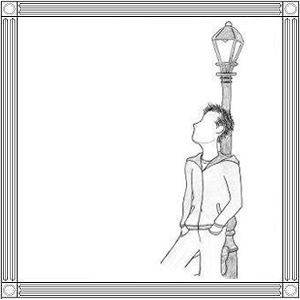 Mulligan had hated high school. Worse still, by having never left Capital City, he had found himself once again in the same halls he’d walked as a student.
Mulligan had hated high school. Worse still, by having never left Capital City, he had found himself once again in the same halls he’d walked as a student.
The mustard yellow lockers appeared unchanged since his youth.
Smith had come to a halt just outside the building’s main office – a long bench faced the monolithic front desk, behind which a colony of administrative staff worked in a frenzy to bring a Monday’s worth of affairs in order. Even from his distance, the private detective could hear snatches of conversation relating to Ms. Lacy, and her young victim, Jarrod Givens.
Although the boy had come forth to his parents on Saturday, the police had been unable to locate Ms. Lacy until Sunday, when she was found while returning to her apartment, supposedly after a road trip to her ailing mother’s nursing home. Smith knew this much to be true, as he’d had it confirmed in the papers, and by a few friends at the department – but that was extent of the information that was available.
“I heard she was actually visiting some kid she met on the Internet,” said a sharp-faced woman, from behind her glasses.
“It would make sense,” replied an man in a tie-less blue dress shirt, “I heard her and Jarrod have actually been together since the start of the year, so maybe he’s bringing it up now out of revenge.”
Mulligan had spent a sizable portion of his morning asking around regarding any such possibilities, but none of the student body had noticed anything awry with the woman – though many of the male students claimed to have often kept a close eye on her.
The most they would say about Jarrod was that he was a “good guy.”
The PI was intimate with the term: Too often it was the label given to any miscreant who’d avoided having his crimes or perversions noticed simply by remembering to wave and smile when they passed others in the hallway, or on the sidewalk.
Before his on-the-spot interviews, however, he’d taken Ms. Lacy’s incarceration as an opportunity to rifle through her trash. She lived in a small house, formerly her mother’s, and he’d discovered the cans neatly arranged under her flimsy carport. The contents were everything he’d expect of a woman living alone, and nothing more. The worst of it was a bottle of wine which he located in a recycling bin, but it was a slim bottle, and stood as the only alcohol beside a mountain of used cans and tissue boxes which might have been collecting dust for weeks.
Smith had also scrounged through the desk in her homeroom class, moments before her bewildered replacement arrived to take attendance, but all he’d uncovered was a mechanical Bic pencil, a mummified eraser, and a confiscated note from one Jeannie Simms, to a Matty, which might have been written at any point since the invention of pink-inked pens, and contained information useful only to the apparently adored Matthew.
Having turned up little, he’d finally approached the office. At a time he’d been too familiar with the place, and he knew there to be a honeycomb of teachers’ mailboxes just beyond the door which separated students and staff, but, in crossing the threshold, he would expose himself as something more than just a sloppily dressed visitor.
Left no option, he squared his shoulders, and marched through the entrance. The PI had found a purposeful stride was often enough to mollify those interested in minding their own business – not so on this occasion.
As his fingers walked along the plastic labels indicating the owner of each cubby, Smith was interrupted by a voice of bottomless authority.
“Excuse, what do you think you’re doing back here,” asked the man behind him. Mulligan’s hand had stopped at Ms. Lacy’s letter drop, but the hollow was empty. His interrogator noted the detective’s interest in the location. “Are you some kind of pervert looking for souvenirs? The press? Either way, I’m calling the police – you’re trespassing.”
“No, I’m -” said Smith.
“Save it,” was the reply.
Turning, Mulligan took in the tall suit’s thick shoulders, and shaved head. He recognized the speaker as the school’s principal, although he now appeared much angrier than the portrait which hung at the front entrance, and the painting had not made clear that the man had obviously once been a boxer.
The former fighter’s flat-lipped expression clearly announced that he’d heard a lifetime of excuses already, and had no intention of burdening himself with more.
Although the investigator now knew he was likely to be escorted off the property by some of his uniformed friends from downtown, he could see no way to avoid it.
Then, from the far side of the desk, a teenage voice said, “Mulligan! Hey – I was wondering where you were.”
The broad-faced ex-pugilist raised an eyebrow.
“You know this man?” he asked.
“Yeah, sure, he’s sort of like my uncle. Not actually related or anything, just close with the family. I forgot my wallet at home. I texted Mom, but her and Dad are at work, so they sent him down with a twenty.”
The intruding boy rounded on Smith, and the detective became convinced he’d seen the lad somewhere before – perhaps the son of a client? Hopefully not the son of a former subject.
Whatever the case, Mulligan dutifully handed over a hard-earned bill.
“I’ll walk with you while you go,” said the recipient.
As he pushed against the chromed bar and swung wide the door, Smith let out a sigh of relief, and zipped his hoodie against the chill October air.
“I’ve been sort of following you around all morning,” said the teen. ”I thought it was you, but I wasn’t sure at first. Don’t blame you for not recognizing me – I’ve changed a lot.
“I’m Lucas – we met downtown. You spilled gin on me.”
Smith had encountered the lad four years earlier, while looking for a fellow who would later turn out dead. The last time he’d seen him, Lucas had been ten, and bleary eyed with drink. “You’re looking a lot better these days,” he said, “though I recall you were wearing some fancy private school duds last time, not rubbing elbows with the public.”
“Yeah, well, I’ve sort of thought about calling you a few times. Always seemed like it would be weird – it wasn’t like I got clean right away when you screwed me, but it was a huge step along the road. You got me kicked out of Ashbury Academy, and that eventually lead me to a summer camp full of idiots with similar problems. Some days are tougher than others, but you were a big help.
“I’m glad to hear it – and thanks for the save back there.”
“Old man Turnbull isn’t so bad, he’s just excitable.”
“Understood. You know Ms. Lacy at all?”
“I’ve heard the rumours, but I never had a class with her.”
Mulligan nodded, and his thoughts drifted to his Tercel, parked alongside the nearby road. He tightened his collar against the cold. “Sure. Look, you SHOULD call me sometime, but I’m sort of in the middle of something, you know how it is.”
“Yeah,” replied Lucas.
As he stepped from the curb, a sudden thought came to Smith.
“Hey, do you know Jarrod Givens at all?”
The boy paused the door open before him. “Bah, that jackass is always giving me guff.”
“Huh. Most of the kids in his class really seem to like him.”
“You’ve obviously missed talking to the junior geeks and goths – can’t blame you though, they make themselves pretty invisible. Those senior a-holes only like him because he’s the cheapest dealer in the school.”
Flash Pulp is presented by http://skinner.fm, and is released under the Canadian Creative Commons Attribution-Noncommercial 2.5 License.
Freesound.org credits:
- white noise high school canteen by klankbeeld
- SFX high school playground distant by nickpursehouse
- HeavyMetalDoorInsideMicsCenter by firefreak
Text and audio commentaries can be sent to skinner@skinner.fm, or the voicemail line at (206) 338-2792 – but be aware that it may appear in the FlashCast.
– and thanks to you, for reading. If you enjoyed the story, tell your friends.
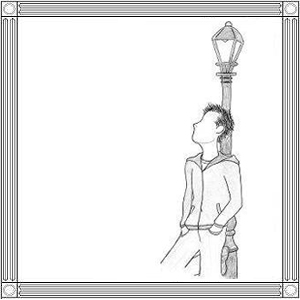 The house sat slightly to the right of the center of its block, and was flanked on either side by nearly identical replicas of its brick facade and wooden porch. The neighbourhood, on the west-side of Capital City, had been claimed by the somberly dressed office dwellers of the downtown core, and many of the small front yards had been smothered in pavement, to make space for extra parking.
The house sat slightly to the right of the center of its block, and was flanked on either side by nearly identical replicas of its brick facade and wooden porch. The neighbourhood, on the west-side of Capital City, had been claimed by the somberly dressed office dwellers of the downtown core, and many of the small front yards had been smothered in pavement, to make space for extra parking. It’s an odd thing to introduce yourself to your neighbour when you are both miles from home, and you can’t be entirely sure they haven’t murdered someone. Worse still, it was soon obvious that Mr. Baldy, who presented himself as Virgil Gratey when I admitted I couldn’t recall his proper name, knew much more about my affairs than I knew of his.
It’s an odd thing to introduce yourself to your neighbour when you are both miles from home, and you can’t be entirely sure they haven’t murdered someone. Worse still, it was soon obvious that Mr. Baldy, who presented himself as Virgil Gratey when I admitted I couldn’t recall his proper name, knew much more about my affairs than I knew of his.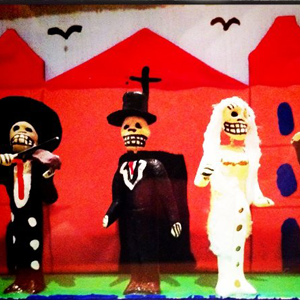 The McKean’s lived in a two story house at the furthest edge of Massawa Acres, a planned suburb still in the beginning throes of construction. Doug, the father, had bought early, with the thought that land prices would only rise as development continued. When he’d announced his plan, his family had done little more than nod their agreement before returning to their individual pursuits.
The McKean’s lived in a two story house at the furthest edge of Massawa Acres, a planned suburb still in the beginning throes of construction. Doug, the father, had bought early, with the thought that land prices would only rise as development continued. When he’d announced his plan, his family had done little more than nod their agreement before returning to their individual pursuits.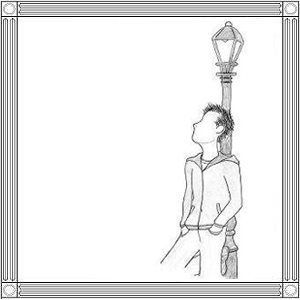 Smith was tempted to pull his hands from his hoodie pockets, so that he might feel his way along the poorly lit corridor, but he refused to deepen his friend’s anxiety by appearing to be stumbling about the place. Instead, he depended on quick elbow work, and a slow shuffle, to navigate the plywood halls.
Smith was tempted to pull his hands from his hoodie pockets, so that he might feel his way along the poorly lit corridor, but he refused to deepen his friend’s anxiety by appearing to be stumbling about the place. Instead, he depended on quick elbow work, and a slow shuffle, to navigate the plywood halls.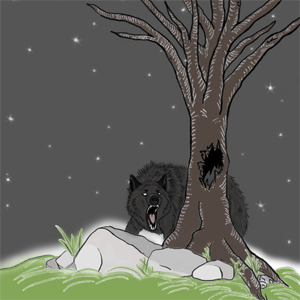 “Slowpokes,” said Jeanine, her words answered only by the steady ticking of the glass domed mantel clock.
“Slowpokes,” said Jeanine, her words answered only by the steady ticking of the glass domed mantel clock. “Remember that taxi I was waiting around for last week – the one with the corpse in the trunk?” asked Mulligan.
“Remember that taxi I was waiting around for last week – the one with the corpse in the trunk?” asked Mulligan. The riddle of the dead-face box had paid for the rental car, a hotel room with dirty carpets, and gas, but Coffin had little confidence he’d see any further payment for his efforts – he, in fact, believed that things would end rather abruptly.
The riddle of the dead-face box had paid for the rental car, a hotel room with dirty carpets, and gas, but Coffin had little confidence he’d see any further payment for his efforts – he, in fact, believed that things would end rather abruptly.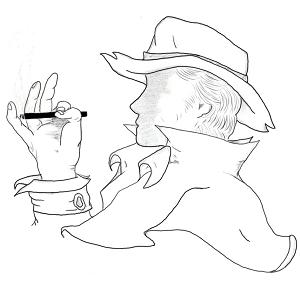 Thomas had taken on two days rustic travel to answer the invitation, and he was somewhat vexed to discover the barefoot woman in ragged clothes muttering about the large house.
Thomas had taken on two days rustic travel to answer the invitation, and he was somewhat vexed to discover the barefoot woman in ragged clothes muttering about the large house. He wasn’t a terrorist – he’d done nothing wrong, beyond being born in a place full of oil, and this wasn’t the Middle East, were Logan Clark’s thoughts as he snapped down the last of the zip ties.
He wasn’t a terrorist – he’d done nothing wrong, beyond being born in a place full of oil, and this wasn’t the Middle East, were Logan Clark’s thoughts as he snapped down the last of the zip ties.